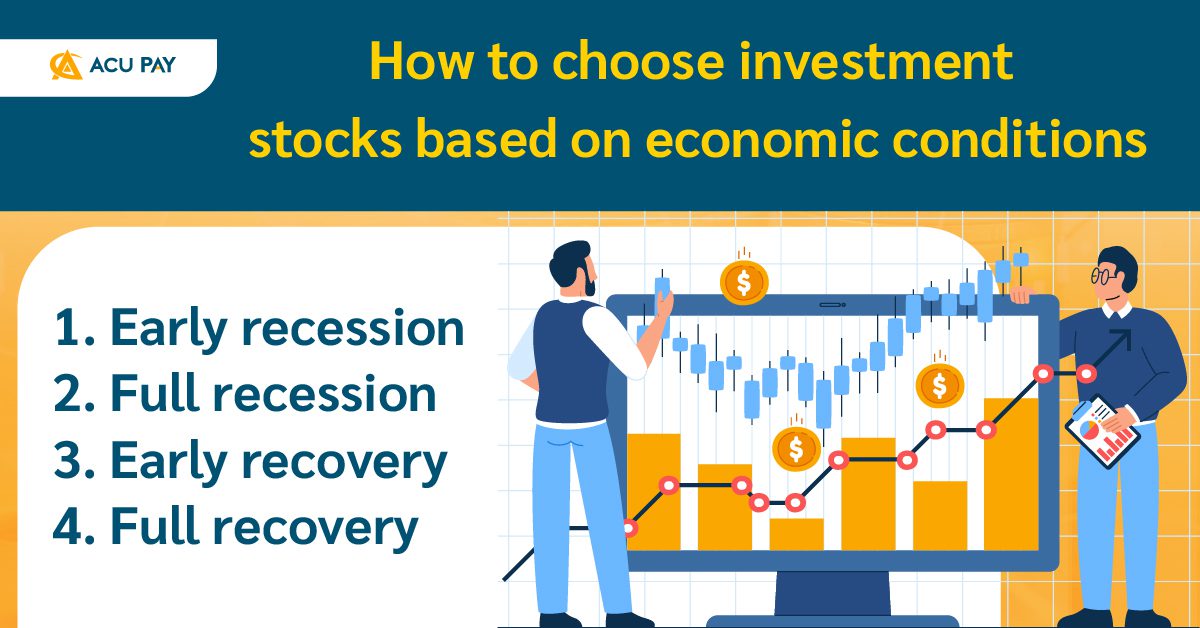

The stock market usually reflects an average 3-6 month future. Therefore, during the economic downturn, the stock market may already be on the uptrend. Stocks with outperformance tendencies do not mean that they will yield more positive returns than others. For example, stocks may fall but they may fall less.
If you are ready, let’s start!
Basically, the economic cycle is divided into 4 stages in order as follows:
It is a time when the economy looks poor, with high interest rates, flat yield curves, or inverted forms. This may be a downturn in the stock market due to investors’ fear of a possible recession in the future. In the early days, stocks that tend to outperform will be rather defensive, such as medicine & health, and infrastructure groups, but later may be banking and finance groups.
This is a period of negative GDP growth or an era of famine. Policies to stimulate the economy may be introduced such as interest rate cuts. This may be the time when the stock market has bottomed out or is on an upward trend. The group that performs well will benefit first once the economy recovers, such as finance, technology, and cyclical groups.
When the economy started to pick up where interest rates had bottomed out, inflation remained low, and inventory gradually sold, prices began to rise, business performance improved, economic activity recovered, consumers began to spend more, and investment direction was likely to improve. Based on GDP growth, the stock market is now on the uptrend, the stocks that will benefit are technology, industries and basic materials, energy, and luxury goods which are likely to benefit from the economic recovery.
The stocks that tend to yield good returns will be basic materials, energy, and luxury goods. However, at the end of this period, the stock market is worried about the economic recession and comes back to giving weight to the relatively defensive service group at the end, such as the medical group.
Return on stocks may not improve much from the recession period. It is recommended to reduce the stock proportion in portfolios. If you need to invest, it is stocks that are inexpensive are recommended and should have stable cash flow, such as utilities and long-term debt instruments. Since the Bank of Thailand cut interest rates to stimulate the economy, the value of long-term debt instruments will increase (the price of long-term debt instruments will run counter to interest rates). The ones with good credit ratings should be chosen to reduce the risk of insolvency of issuers.
References from
setinvestnow /setinvestnow2 /set /setinvestnow3

ให้ทุกเรื่องการเงินเป็นเรื่องง่าย เริ่มต้นวันดีๆ ไปกับเรา MAKE A GREAT DAY WITH ACU PAY